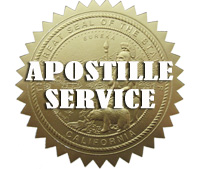
An apostille or authentication is required when notarizing papers that will be forwarded to other nations, however it is up to the signer to seek assistance with apostille service.
After the document has been notarized, an appropriate government official will frequently affix an apostille, which is a certificate. Even though getting an apostille is not the responsibility of a notary, signers frequently inquire about them, so it can be useful to know what they are and how they function.
Certificate of Authentication
Documents bearing a Notary’s seal and signature must have apostille or authenticity certifications in order to be recognized abroad. Both attest to the commission as a Notary Public at the moment the document is notarized.
For transferring official papers between nations that have ratified the 1961 Hague Apostille Convention, apostille certificates are employed. This international agreement shortened the lengthy, customary process for document authentication.
The Secretary of State’s office or the commissioning body for notaries issues an apostille. The only certification required is the apostille. The apostille is made, checked, and then attached to and submitted with the notarized documents. Apostilles cannot be issued by notaries on their own. All of this takes place after the notarization and doesn’t involve the notary in any way.
For destinations that are not signatories to the Hague Convention, authentication certificates are utilized. The document requires multiple authentication certificates rather than a single apostille, such as those from the notary commissioning agency, the U.S. Department of State, the consul of the destination country, and maybe another government authority in the destination country.
Authentication certificate requirements and processing times differ from nation to nation.
What is a Notary’s Function?
Notaries will only need to notarize the actual document. The notarization must be done correctly because the document is going to be received in another country and mistakes could cause issues. For instance, certain courts in other nations who preside over adoption matters might reject documents that are not properly notarized.
Remember that any notarized material passing through a Notary regulator’s office will be carefully examined. Any notarial mistakes could lead to legal action being taken against the commissioned notary. Check the entire document and recheck it again.
